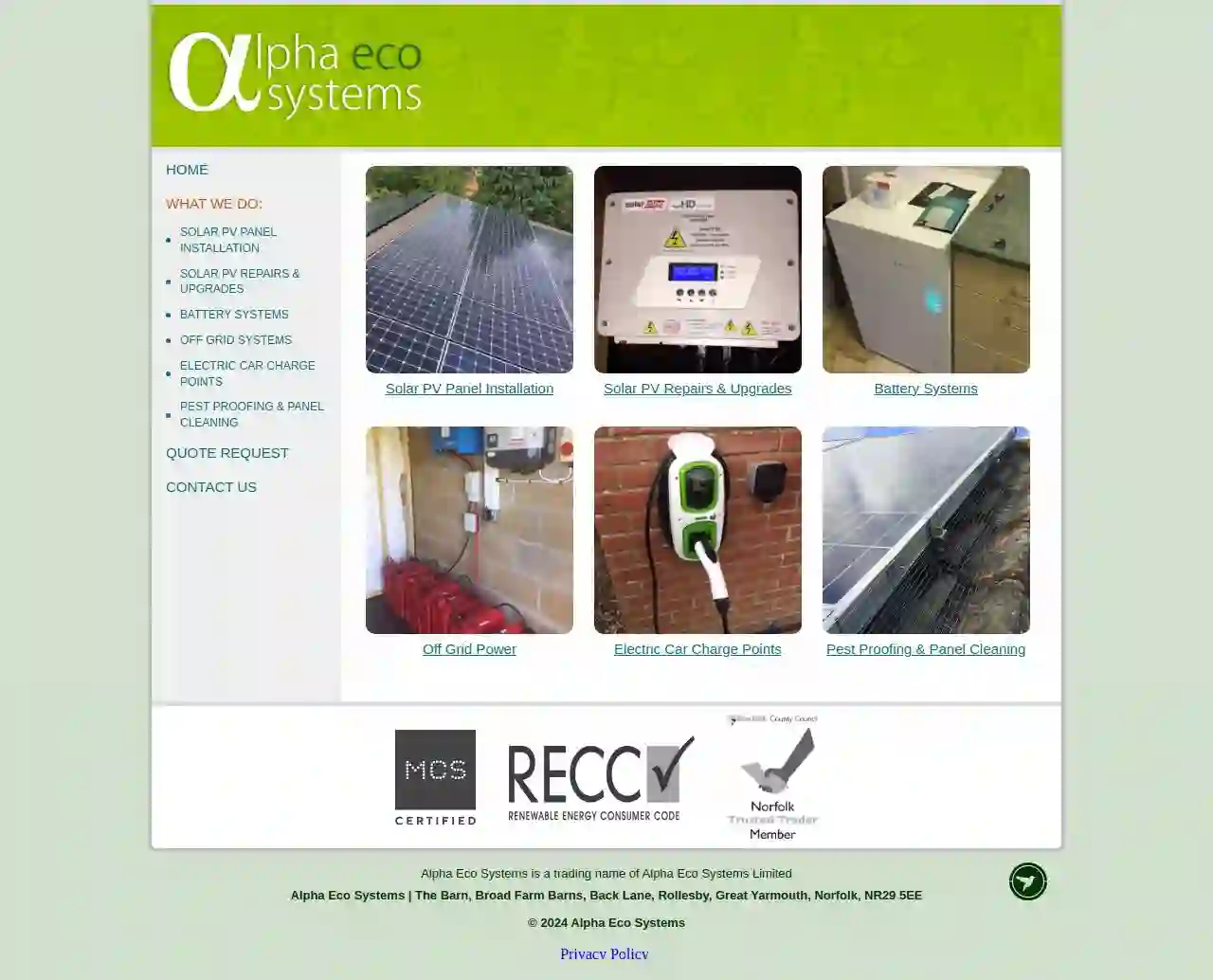Solar Installers Bungay
Find top Solar Installation Companies in Bungay
Get 3 FREE Solar Panel Installation Near Me quotes for your project today! Compare profiles, reviews, accreditations, portfolio, etc... and choose the best offer.

Partnerships for Renewables Ltd
Lowestoft, GBPartnerships for Renewables (PfR) is an established technical consultancy and asset management service provider to the renewables industry. Our experienced team deliver a complete solution or bespoke service, tailored to the specific needs of our clients. Our mission is to provide the highest quality of service within our industry, focussing on an unparalleled attention to detail, operating as if each project were our own. PfR believes that incorporating environmental, social, corporate governance and ethics considerations in its business activities is essential to creating value for its clients and to develop a more sustainable long-term strategy. Please click here to view our ESG policy. PfR's commitment to ESG is demonstrated in its ongoing participation in GRESB having been previously awarded 'Asset Sector Leader 2020' status and in 2023 '1st place in the Northern Europe On-Shore Wind Power' for Crook Hill and Reaps Moss wind farms, both managed by PfR for Vantage Infrastructure. GRESB is the leading ESG benchmark for real estate and infrastructure investments and captures information regarding ESG performance and sustainability best practices.
- Services
- Why Us?
- Accreditations
- Gallery
Get Quote
P.E.S. Renewables Ltd
58 reviewsLowestoft, GBPes Renewables can transform your residence with renewable energy solutions in Norfolk including: Solar Panels Battery Storage EV Chargers Repairs As Norfolk’s premier solar panel company, we are dedicated to providing sustainable energy solutions that not only reduce your carbon footprint but also save you money in the long run! PES Renewables is the partner company to PES Electrical & Security, established in 2017, and we continue their renowned tradition of high standards of customer service and workmanship but within the renewables sector. We understand that no two homes are the same. That’s why we offer personalised sustainable energy solutions to cater to your unique needs. From system design to installation, we are with you every step of the way.
- Services
- Why Us?
- Accreditations
- Gallery
Get Quote
Mr Solar
514 reviewsCamelot Rd, Gorleston-on-Sea, NR31 7RA, GBMr Solar is a leading provider of solar panels and battery storage solutions in East Anglia. With offices in Gorleston and Norwich, we offer a local and personal service to our customers. Our team of experts can help you power your home with solar energy and reduce your energy bills. Contact us today to learn more and get a free quote.
- Services
- Why Us?
- Accreditations
- Gallery
Get Quote
Alpha Eco Systems
55 reviewsBroad Farm Barns, Back Lane, The Barn, Rollesby, NR29 5EE, GBAlpha Eco Systems is a leading provider of sustainable energy solutions in Norfolk. We specialize in the installation, repair, and upgrade of solar PV panels, battery systems, and electric vehicle charge points. Our team of experienced engineers is dedicated to providing high-quality, reliable, and cost-effective solutions to meet your individual needs. We also offer pest proofing and panel cleaning services to ensure your solar system is operating at peak performance. At Alpha Eco Systems, we are committed to reducing our carbon footprint and promoting a greener future. We believe that everyone should have access to clean, affordable energy. Our mission is to empower our customers to make the switch to sustainable energy and save money on their energy bills. We are a trading name of Alpha Eco Systems Limited and are based in Rollesby, Norfolk.
- Services
- Why Us?
- Accreditations
- Gallery
Get Quote
Solar Energy Alliance
12 reviewsLowestoft, GBSolar Energy Alliance is a platform that provides news, research, and reviews on solar energy and its applications. The website features articles on various topics such as average electricity usage in Ireland, how many solar panels are needed to charge a Tesla, solar shingles vs solar panels, and more. The website aims to educate readers on the benefits and challenges of using solar power and its impact on the environment.
- Services
- Why Us?
- Gallery
Get Quote
SOMA systems.
57 reviewsLowestoft, GBSOMA Systems is a renewable energy installation company that is passionate about delivering high-quality installations. We use only the best products and technology to ensure that our customers receive the most efficient systems. We offer competitive pricing and are dedicated to ensuring that our customers receive excellent value for their investment. By choosing SOMA, you can rest assured that you will receive exceptional service and support every step of the way, including when your installation has been completed.
- Services
- Why Us?
- Accreditations
- Our Team
- Testimonials
- Gallery
Get Quote- Ch
Charles Roberts and Sons Ltd
56 reviewsLowestoft, GB- Services
- Why Us?
Get Quote - Ci
City Electrical Factors Ltd (CEF)
517 reviewsLowestoft, GB- Services
- Why Us?
Get Quote - Pr
Prime Energy Solutions Ltd
Lowestoft, GB- Services
- Why Us?
Get Quote - Ho
Home Solar Power
Lowestoft, GB- Services
- Why Us?
Get Quote
Over 3,485+ Solar Installers onboarded
Our solar providers operate in Bungay & beyond!
SolarCompaniesHub has curated and vetted the Best Solar Contractors arround Bungay. Find a top & reliable pro today.
Frequently Asked Questions About Solar Installers
- System size
- Roof complexity
- Weather conditions
- Permitting and inspections
- Installer's schedule
What is net metering, and how does it work?
How long does it take to install solar panels?
What happens if my roof needs to be replaced after I install solar panels?
Can I go completely off-grid with solar panels?
What is net metering, and how does it work?
How long does it take to install solar panels?
- System size
- Roof complexity
- Weather conditions
- Permitting and inspections
- Installer's schedule